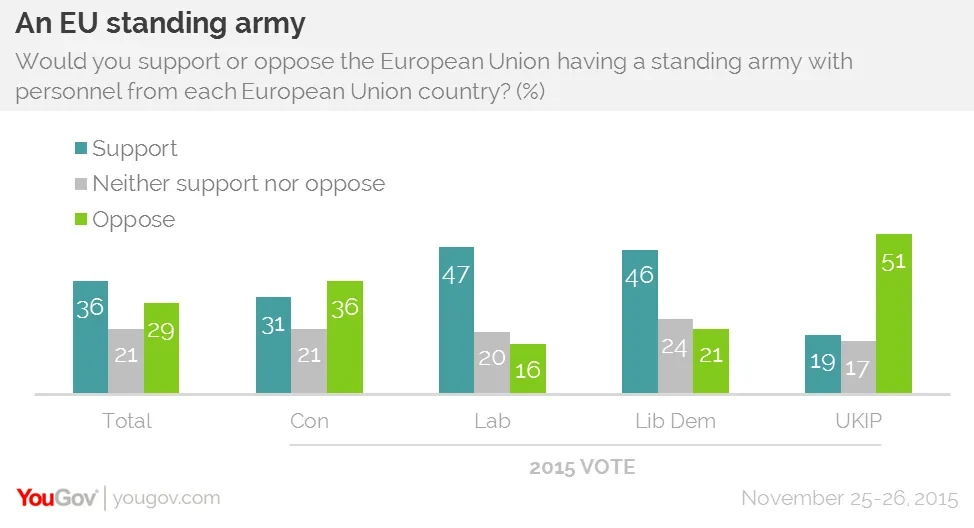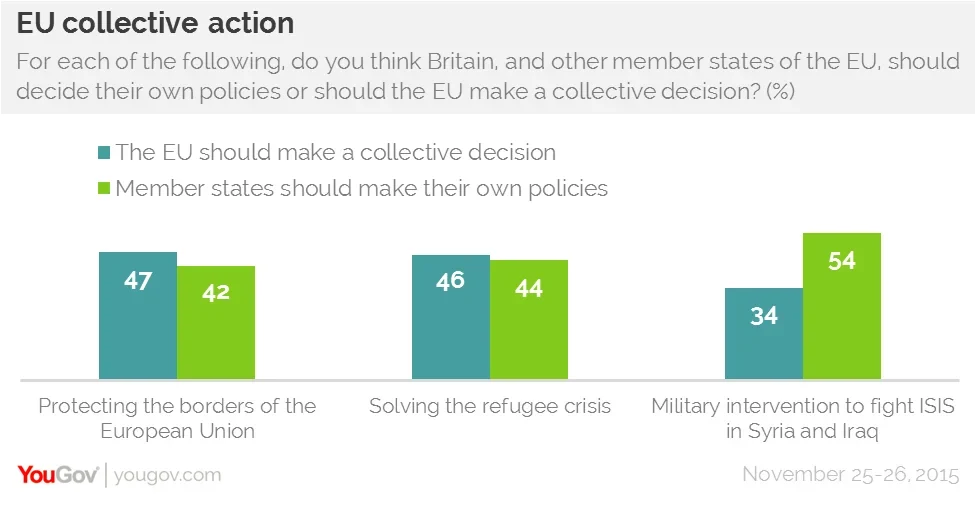Despite Briton's general scepticism towards the EU and closer European integration, a surprisingly large minority would support an EU standing army
The European Union has already shown a coordinated approach to the refugee crisis this year. With Europe now the primary target for ISIS, and looking more like a united military force against its militants in Iraq and Syria, the question arises of how integrated EU countries should be in their approach to foreign policy. Considering the perception of the British public as being sceptical of any further EU integration, they are actually surpisingly positive towards the idea of a European Union army, made up of personnel from each EU country.
In research conducted for the first conference of the YouGov Centre for Public Opinion Research at Polis, Cambridge University, 36% of British people say they would support the idea, 29% would be opposed and 36% don't know or have no feelings either way.

Only UKIP voters are strongly opposed to the idea (51% oppose, 19% support). Conservative voters split slightly against the idea (36% oppose, 31% support) and Labour voters are strongly in favour (47% support, 16% oppose). 31% of respondents think an EU army would make Europe safer, 10% less safe and 40% no difference. 23% think it would make Britain itself safer, 16% less safe and 42% no difference.
Moreover, in principle a solid majority of British people think that we should work together with other European countries in foriegn policy – 60% think we should work closely with other European countries and only 26% disagree. In practice, however, this is seen as being more about sharing information than sharing military capacity. People are divided over whether we should provide troops to EU missions (38% think we should, 39% that we should not) and on whether we should provide equipment to EU missions (37% think we should, 40% think we should not). Only when it comes to sharing intelligence is there strong support (63% think we should, 17% that we should not).
47% of people think that the EU should have a collective policy on controlling EU borders compared to 42% of people who think each country should have their own policy. This tells a different story to other polling which consistently shows that control of immigration is one of the issues people most want brought back to Britain from Europe. The apparent contrast is probably down to different perceptions towards freedom of movement within Europe (where the EU is perceived as leading to higher immigration) and immigration from outside the European Union (where perhaps the public perceive a co-ordinated policy as more likely to control immigration).
On the issue of taking military action in Syria 54% of people still think that EU countries should come to their own conclusion, only 34% think there should be a joint EU decision.

The YouGov Centre for Public Opinion and Policy Research at Cambridge University was launched yesterday with a one-day conference. It covered YouGov's analysis of the causes of polling errors in the 2015 general election as well as attitudes to UK military intervention in Syria and to the European Union referendum. On Syria specifically, former head of the British armed forces General Lord Dannatt suggested the conflict can only be settled with "boots on the ground" stressing the need for "a coordinated military campaign with Russia". Putin’s interests and our interests are very much the same, he argued.
PA image











